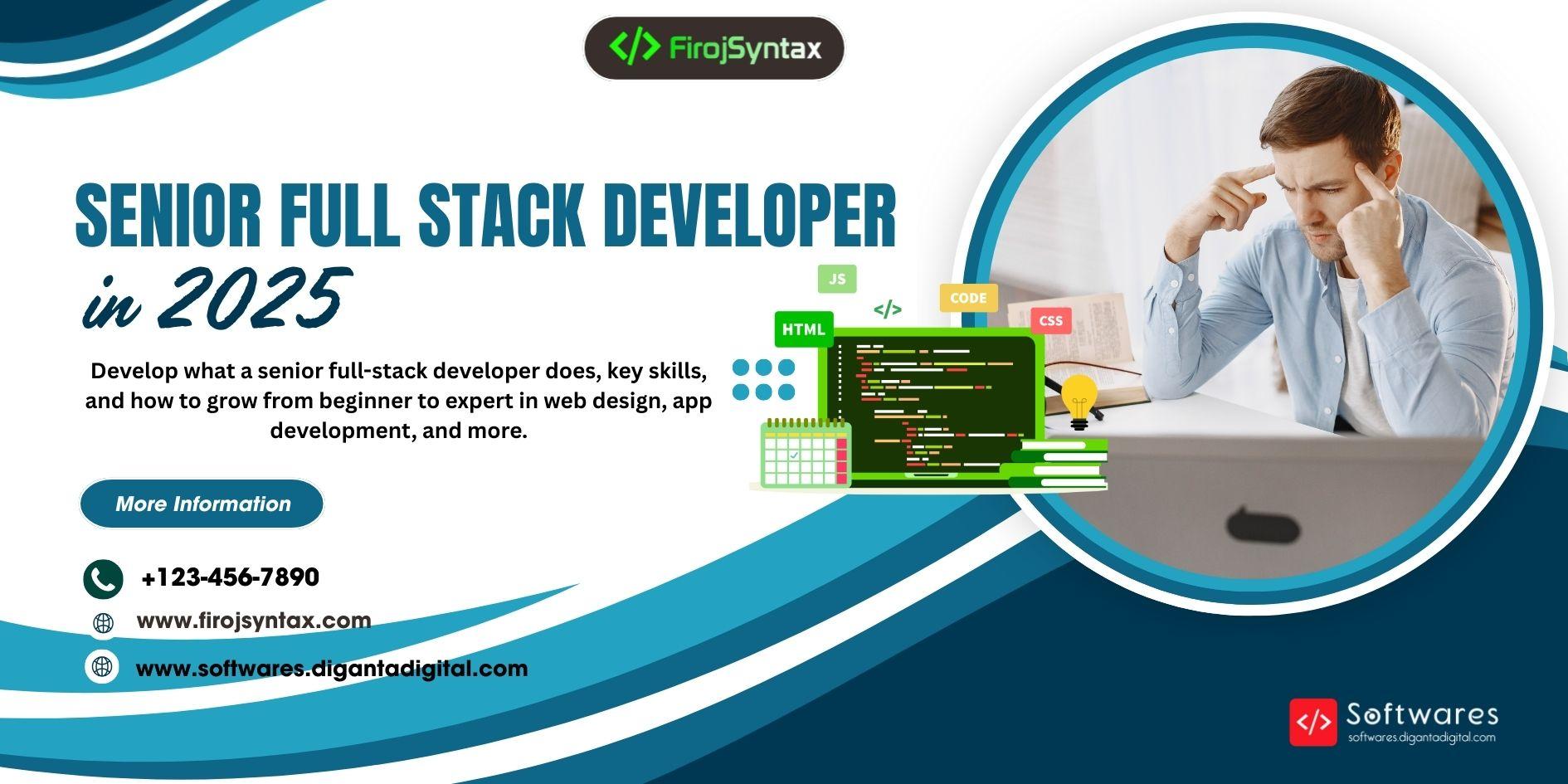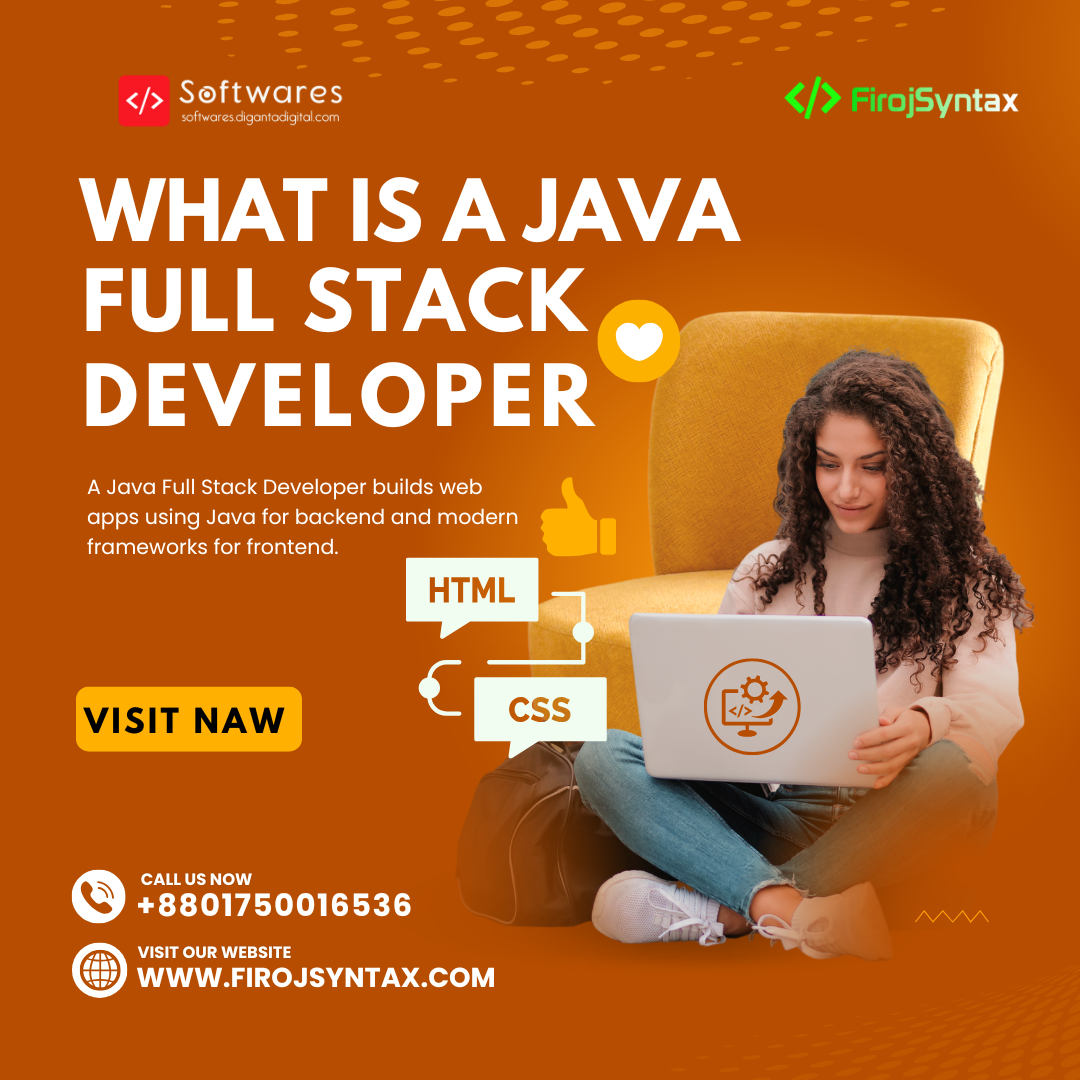Develop what a senior full-stack developer does, key skills, and how to grow from beginner to expert in web design, app development, and more.

Ever wondered what it takes to become a senior-full-stack-developer? I asked myself that same question when juggling front-end tweaks and back-end bugs late at night. Whether you're curious about the whole career path or still figuring out what a full-stack developer is, this guide will walk you through every step — from the basics of web design and app development to the high-level skills that separate juniors from seniors. I'll share insights from real-world experience, break down confusing jargon, and help you decide if this path is right for you. Ready to dive in? Let's get started.
So, what is a full-stack developer exactly? Picture someone who can build a house from the ground up—lay the foundation, wire the electricity, paint the walls, and even decorate the living room. That's what a full-stack developer does for a web app. You handle the front end (what users see) and back end (what makes everything work) .
You might design a blog interface on the front end with clickable buttons and smooth navigation. On the back end, you're setting up the server, database, and logic that make that blog publish posts and manage users. I still remember my first project—building a small food recipe site. I had to learn how to make the buttons pretty and save data. That's when it clicked for me.
Whether you're more of a visual person or love tinkering with data and logic, full-stack development gives you the best of both worlds.
The jump from junior to senior full-stack developer isn't just about years of experience—it's about how much ownership you take. When I was a junior, I mostly took tasks from others. But as I grew, I started leading projects , mentoring new developers, and making big-picture decisions.
Here's a quick breakdown:
| Category | Junior Full-Stack Developer | Senior Full-Stack Developer |
|---|---|---|
| Skills | Learns and applies basic tools | Deep understanding of multiple tools & systems |
| Experience | 0–2 years | 5+ years |
| Project Role | Follows directions | Leads and plans projects |
| Decision-making | Asks for guidance | Makes architectural decisions |
| Ownership | Completes assigned tasks | Owns features, mentors, and aligns with business goals |
Being a senior full-stack developer means you're trusted to see the big picture—technical and business goals—and steer the ship. It's exciting but also humbling. You're not just coding. You're guiding.
To be a solid senior-full-stack-developer , your toolbox should be packed. Depending on your stack, you'll need core coding languages— HTML, CSS, JavaScript , plus Python or Java . For front-end magic, tools like React or Vue are a must. On the back end? Think Node.js , Spring , or Django .
Version control like Git , databases like MongoDB or PostgreSQL, and DevOps basics like Docker are essential. I learned the hard way that without version control, even one wrong command could ruin days of work (spoiler: it happened). And trust me, knowing how to manage a CI/CD pipeline can save your future self a lot of headaches.
But here's the kicker— soft skills matter, too. You'll need communication, leadership, and problem-solving skills. To lead web design and app development projects, you've got to connect the dots between tech, design, and user needs.

Now, what is a Java full-stack developer ? It's someone who uses Java technologies for an application's front and back ends. Think Spring Boot for back-end APIs, JSP for dynamic web pages, and Hibernate for database work.
Java stacks are often used in enterprise environments—banks, healthcare systems, big internal platforms—because Java is rock-solid and scalable. This might be your sweet spot if you love structure, performance, and working on large systems.
When should you go for Java over other stacks? Choose Java if you're aiming for long-term enterprise roles or want to master backend-heavy systems. But if you're more into rapid prototyping and creative design, JavaScript-based stacks like MERN might feel lighter and more fun .
The path from beginner to senior-full-stack-developer isn't always straight, but it is doable—one project, bug fix, and "aha!" moment at a time. Start with the basics: learn HTML, CSS, and JavaScript. Then, move to a front-end framework (like React) and a back-end one (like Node.js or Django).
From there, build. Freelance, intern, join open-source. My first freelance job was on a local café website. It paid little, but the lessons were priceless. Real-world work teaches faster than tutorials .
Give yourself 3–5 years to grow naturally. Platforms like free Code Camp , Coursera , and Udemy offer structured learning, but nothing beats hands-on experience. And when you're stuck, don't hesitate to ask or Google. Even seniors still do that (yes, really).
Becoming a senior-full-stack-developer is less about speed and more about consistency. Keep showing up, building, and learning. The rest will follow.
Becoming a senior-full-stack-developer doesn't happen overnight—it's a journey filled with learning, challenges, and growth. When I first started, I had zero clue about web design and app development, but bit by bit, hands-on projects and persistence made all the difference. In this section, I'll share a clear path you can follow, including useful platforms and real-world tips to help you confidently level up from beginner to senior.
Knowing your tools inside out is key if you want to succeed as a senior-full-stack-developer. From React on the front end to Node.js and Java Spring on the back end, mastering these technologies makes building smooth, scalable apps possible. I'll break down the essential tools you'll use daily—plus a sneak peek into exciting AI and API trends shaping the future of full-stack development.
What doors open once you become a senior-full-stack-developer? The tech world is buzzing with opportunities across eCommerce, SaaS, and finance industries. Whether you want to lead projects, work remotely, or dive into startups, this section covers typical job roles, salary expectations, and where the market is headed—so you can plan your career clearly and confidently.
Becoming a senior-full-stack-developer means committing to a fast-paced, ever-evolving field that demands creativity and grit. It's not always easy, but this path could be your perfect fit if you love problem-solving and building things from scratch. I'll help you weigh the pros and cons and give you a nudge to start building your projects today—because the best way to learn is by doing.
Becoming a senior-full-stack-developer is like mastering the art and science of web building. It takes time, patience, and a lot of hands-on experience with web design and app development. From my journey, the most rewarding part was growing from fixing minor bugs to leading complete projects—and that growth is totally within your reach. If you're ready to work and stay curious, this career can open doors you never imagined. So why wait? Start learning, building, and applying today. Your senior full-stack developer path begins now.
Q. What is a full-stack developer?
A full-stack developer works on both the front end (what users see) and the back end (what powers the app) of websites and applications.
Q. How long does it take to become senior?
Typically, it takes several years of practical experience, learning, and skill growth to move from junior to senior full-stack developer.
Q. Is Java good for full-stack development?
Absolutely! Java offers powerful tools like Spring Boot and Hibernate that many senior developers rely on, especially when building robust back-end systems.
Q. Do I need a degree?
Not necessarily. Many successful senior full-stack developers come from self-taught backgrounds or coding boot camps—practical skills and projects often speak louder than degrees.
Q. Can I become a senior full-stack developer without a tech job?
Yes! Freelancing, internships, open-source contributions, and personal projects can all help you build the experience needed to level up.
Your email address will not be published. Required fields are marked *